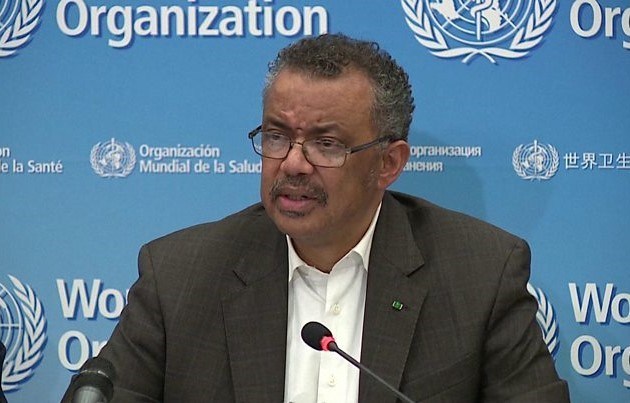With vaccine producers publishing promising results on vaccine efficacy and the authorisation process on its way, the first vaccines for risk groups are likely to be available in January next year.
At his weekly press conference on Friday, WHO Director-General Dr Tedros Adhanom Ghebreyesus was pleased to announce that the regulatory body of the UK has already given an emergency authorization for the Pfizer/BioNTech COVID-19 vaccine for rollout.
In the EU, the European Commission has secured hundreds of millions of vaccine doses through Advance Purchase Agreements with vaccine producers. Any vaccine will need to be authorised by the Commission following a rigorous analysis by the European Medicine Agency (EMA) according to regular safety and efficacy standards. A conditional authorisation is likely to be given soon.
“Progress on vaccines gives us all a lift and we can now start to see the light at the end of the tunnel,” Dr Tedros said. But he warned that even as vaccines are rolled out, people will need to keep adhering to public health measures so that everyone is protected.
“Some countries in Europe have managed to reduce transmission of the virus by putting stringent measures in place that limit people from mingling. As previously seen, as these measures are lifted, it’s important that people should continue to follow national and local measures to ensure that cases do not rebound.”
The Commission presented last week a strategy report with recommendations to the EU member states on how to stay safe from COVID-19 during winter and referred to the “successful approach of avoiding the three C's: closed spaces, crowded places, and close-contact settings.”
“The pandemic still has a long a way to run and decisions made by leaders and citizens in the coming days will determine both the course of the virus in the short term and when this pandemic will ultimately end,” the WHO Director-General said.
He stressed that it is important that vaccines are distributed equitably around the world and referred to the vaccine initiative set up by WHO with the backing of 189 countries. In the first phase of the rollout, sufficient doses will be provided to cover health and social care workers. As supply increases, vaccines will be rolled out to cover further high-risk groups of the population of participating countries.
How to ensure high vaccine coverage
It is also important to ensure that leaders communicate with their populations about the importance of vaccination. Opinion polls in several countries show that considerable parts of the populations are reluctant to vaccination and afraid of vaccines that have been developed and approved in record time (vaccine hesitancy).
Reluctance to vaccination is not a new phenomenon but poses a unique challenge in the current unprecedented pandemic and economic crisis. For the vaccine to stop the transmission of the virus and result in long-lasting group immunity, a majority of the population must agree to become vaccinated.
“There is a need to learn fast and adapt quickly to the new situation,” said Professor Cass Sunstein, chair of the WHO Technical Advisory Group, which has released a report on how best to ensure high coverage of new COVID-19 vaccines.
The report outlines three main factors that drive people’s behaviour when it comes to vaccines: an enabling environment, social norms, and motivation.
An enabling environment refers to the logistics of the vaccinations and the where and how. What might seem to be reluctance, resistance or even opposition to vaccination, might actually be a response to the burdens or inconvenience of getting vaccinated.
It is also important to generate favourable attitudes to vaccination. Making vaccine uptake “visible” to others, through clinics in prominent public places or by enabling ways for people to signal that they have received the vaccine, can contribute to making the social norm more salient. Showing that health professionals are being vaccinated can lead to greater acceptance by the general population.
This will build trust and motivation. “We need to increase individual motivation through open and transparent dialogue and communication about the uncertainty and risks, but also the safety and benefits of vaccination.” The social benefits should be underlined. A person who gets vaccinated does not only save his own life but the lives of other people.
The report admits that vaccine acceptance and uptake may be undermined by COVID-19 vaccines being not fully effective, meaning that people will have to continue to engage in preventive behaviour (e.g. mask wearing and physical distancing) even if and after they have been vaccinated.
The European Commission recommended in its report that the member states should coordinate efforts in tackling the misinformation and disinformation around the COVID-19 vaccine, in coordination and collaboration with international bodies and online platforms. The Commission promised to facilitate these efforts.
The Brussels Times

